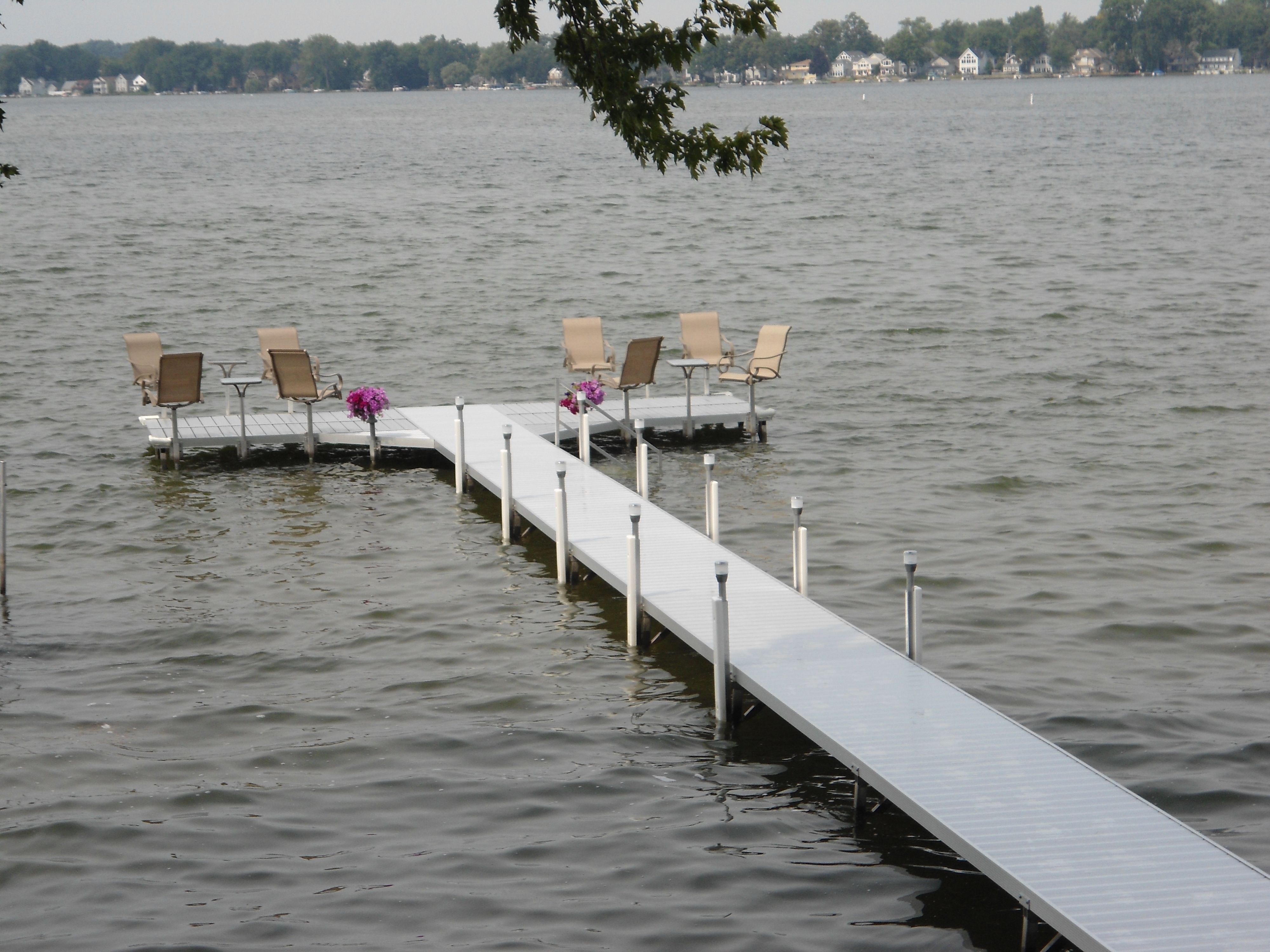Stationary Docks: The Better Alternative to Floating Docks

When it comes to choosing a dock, there are several options available. In concrete, floating and stationary docks can be found. However, if you’re looking for something that is both sturdy and mobile with minimal maintenance requirements, then a stationary dock may be the best option for your needs.
Stationary docks are a far better option than floating docks. For one thing, they’re much more stable. Floating docks can shift with the waves and tides, which can be dangerous for boats that are tied up to them. Stationary docks don’t shift at all—they stay firmly in place no matter what kind of weather comes by.
You may have noticed that our docks are very different from most floating docks. Unlike floating docks, which can only be attached to a concrete pier, stationary docks are designed for use anywhere. They don’t require the use of a concrete pier at all; instead, they can be used on land or even in water. If you’re looking for a dock that can handle your boat and be moved around, you should consider a floating dock. However, if you’re not looking to take your boat out on the water, then stationary docks are the way to go.
One of the most important elements of any dock is that it be stable and secure. Most docks for boats will have a mechanical backing system to hold them in place, but others are gravity-based. A stationary dock can be built using either option.
In this blog , we’ll take a look at the differences between floating and stationary docks, as well as how they’re built. We’ll also discuss some of the pros and cons of each type so that you can make an informed decision when choosing your dock.
Stationary Docks
Stationary docks are a great option for fussy puppies. They are typically less expensive than floating docks, and they are also more durable and less likely to break. They are also easier to put together and come in a variety of sizes and styles. What’s more, these docks are perfect for any type of home, from a small apartment to a large family home. You can also set the dock up in a way that it is more accessible for your pet.
Stationary docks are an innovative product that are being used all around the world! These docks are a much better option than using a floating dock because they do not require any water to be placed on them. They are made out of a high quality metal that makes them rust proof and long lasting. They are also very easy to assemble and take apart. These docks are so easy to assemble that they can be assembled in minutes, without any tools. They are also very affordable and can be purchased in bulk. These docks are perfect for all types of aquatic animals, including fish, reptiles, and algae.
Stationary docks are a new and better option for floating docks. They are not only better for your boat, but they can also be used as a dock for your RV, a beachside lounge, a picnic area, or just as a great place to relax. Stationary docks are a great option for those who are looking for a dock that is less expensive and easier to use.
In order to make the most out of your dock, it is important to know what to do and what not to do. Avoid using your dock during high winds. If you do decide to use your dock with high winds, make sure that you put up warning signs and secure your dock.
Floating Docks
Floating docks are a great option for places that are on the fringe or that are too small for a permanent dock. They are also a great alternative to a traditional dock. They are a great way to keep your boat in a location that can be reached easily.
Floating docks are an easy way to provide a stable surface for your dogs while they are in the pool. They are designed to float on top of the water and hold your dog in place. However, they are not the best option when it comes to the safety of your dog. Floating docks are easily tipped over. If your dog falls in the water, it is at risk of drowning, as the water is usually too deep for it to climb out.
But they have some disadvantages. One of the main disadvantages of floating docks is that they are not very durable. They are made of wood and are attached to the boat via nails or screws. Eventually, the wood will rot and the nails or screws will loosen, causing the dock to start to fall apart. The other major disadvantage of these docks is that they are not that stable. They are not designed to stay in place and will eventually tip over.
Stationary Dock vs. Floating Dock
Floating docks are popular for a reason. They're easy to install, easy to move around, and easy to use. However, there are some drawbacks that can make them difficult to use and have limitations. Stationary docks offer several advantages over floating docks, including:
- When you think of dock options, you may be thinking of floating docks. However, if you are looking for a stationary dock that can handle your boat and its needs, then a stationary dock may be better suited for your needs.
- Floating docks are great because they allow you to move the boat out of the water and onto the dock. If you have a smaller boat or one that is not meant for water travel, then this will be beneficial. It also provides protection from heavy winds and waves.
- However, stationary docks are more stable than floating docks because they can withstand high winds and waves without tipping over or spilling over. Stationary docks also offer more security features like security cables and gates to keep out unauthorised personnel from entering your property.
- Some people choose to use both types of docks depending on what type of boat they have and how often they wish to move it around versus keeping it docked permanently at one location.
- They're more secure since they don't float in water.
- They can be moved around so that you can leave them wherever you want them.
- They require less maintenance than floating docks do.
- They are much easier to transport because they don't need to be tied down or weighed down with tons of concrete (and then moved again).
- They're less expensive than other options because they don't require as much construction.
- They are more secure since they don't float in water. Stationary docks are also more versatile than floating docks.
- They can be used in a variety of different locations and applications, including:
- Residential use (like a backyard dock or a dock on a lake)
- Commercial use (for boats and ships)
- Industrial use (for loading equipment or cargo onto trucks or trains)
- They can be installed in less time since you don't need to wait for the concrete to dry.
- They are much cheaper than floating docks.
The Pros of Stationary Docks
Stationary docks are the perfect solution for boat owners who want to keep their boats in one place, but don't want to be tied down to a fixed docking location.
They offer many advantages over floating docks:
-
Stationary docks are more stable than floating ones. This means they can withstand rougher conditions and provide a safer environment for your boat.
-
You have more control over where you park your boat. With a stationary dock, you can choose between multiple options based on the type of lake or river you're using as your docking location.
-
A stationary dock is less likely to rust than a floating one because it's placed on solid ground instead of being exposed to water all the time.
-
Spending time on a stationary dock means paying less money for repairs since there are no moving parts that need regular maintenance like there are with floating docks (unless you choose one that's made specifically for motorized boats).
-
They are more secure, because in order to get onto the boat, you have to go under the dock.
-
They can hold more boats, because there is room for more.
-
They can be built higher, so they are more visible from shore.
-
They can be made out of steel or concrete, which means that they won't rust or corrode as easily.
The Cons of Stationary Docks
- Floating docks can be dangerous for boats and their owners.
- They can cause damage to the boat if they are not properly secured, especially if there is a heavy wind.
- Floating docks are difficult to service and can be costly to maintain, especially if you want to make any significant changes.
- They also require regular maintenance, which can be expensive and time-consuming.
- Floating docks are also unsuitable for some boats that do not have a flat bottom or large hulls such as catamarans or motor yachts/yachts.
- If your dock needs to be moved because of an expansion or contraction in your business, you will need to hire a contractor to move it. This can cost hundreds of dollars per hour, and it is often best to find an alternative solution before paying that kind of money.
The Pros & Cons of Floating Docks
If you have the time, money, or inclination to do it yourself, however, floating docks are a great option. There are many different types of floating docks on the market today and some can even be installed by your local hardware store.
Floating docks are designed to be installed on the water and can be used with both above-ground and below-ground pools. They are usually made of plastic or aluminum, but some models are also made with wood. But both have their own pros and cons . If you’re looking for a floating dock, here are some things to consider.
The advantages of stationary docks include:
- They're easy to install—you don't need any special tools (or even a boat!)
- They're less expensive than floating docks
- They offer more stability than floating docks
- They usually come with an anchor
- They're safer than floating docks
- They're easy to repair if something goes wrong
- You can install them almost anywhere
- They don't require a boat and can be used by anyone
- You can store small boats, kayaks, and other water toys in them.
The disadvantages of stationary docks include:
- They're less attractive than floating docks
- They're less flexible than floating docks
- They need to be installed in the water, so they can't be moved around easily
- They're more difficult to install than floating docks
- You need to maintain them regularly
- They're more expensive than other types of docks
- They're slightly more expensive than floating docks -They can be expensive
- They're not as easy to repair if something goes wrong
- You need to find a place that already has a dock installed, or - you'll have to install one yourself
- They're less safe than floating docks
Conclusion
There are some aspects of floating docks that make them preferable to stationary docks, but overall, stationary docks are better.
In this article, we had a talk about the benefits and drawbacks of both floating and stationary docks.
We also offered some advice on how you can choose the best option for your needs. But the decision between floating and stationary docks depends on a number of factors, including your budget and your location.
If you’re still not sure which type of dock is right for you, we recommend talking to a professional. They can help you figure out what kind of floating or stationary dock will work best and explain the installation process.
we hope you enjoyed this article and found it helpful. We’re always happy to answer any questions about floating and stationary docks, so feel free to leave us a comment below!

 LITERATURE
LITERATURE 




